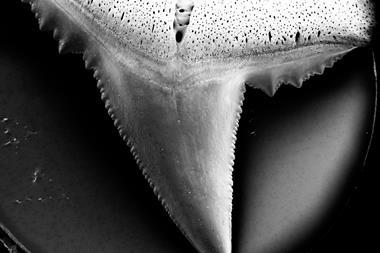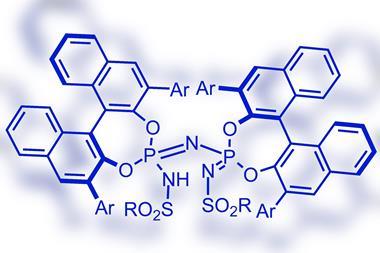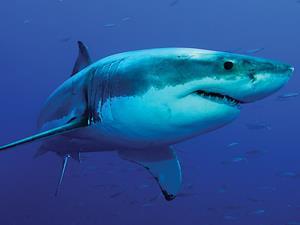Potential replacements for squalene, a shark-derived vaccine ingredient, have been developed by scientists in the US. Squalene is used in adjuvants to boost immune responses, but it is sourced from wild caught sharks, including those under threat from overfishing.
Squalene is a natural terpene found in many plants and animals but is especially abundant in shark liver. To avoid the need to use squalene from sharks, the team worked with ß-farnesene, a compound derived from yeast fermentation. Chemical synthesis was used to convert ß-farnesene into 20 different analogues of squalene. ß-farnesene is already made commercially using yeast by Amyris, a US biotech which produces a squalene-like compound for cosmetics: squalane.
The new squalene-like compounds were tested in blood assays to evaluate immune responses. They were also formulated into an inactivated flu vaccine and screened by ranking the immune response of mice injected with it, compared with squalene.
‘Four or five of the molecules showed enhanced adjuvant activity compared to shark squalene,’ says Christopher Fox at the Access to Advanced Health Institute in Seattle, Washington, who led the study. He was interested in the structure–activity relationship of squalene analogues as adjuvants. Although squalene is in several vaccines, adds Fox, ‘it’s not fully understood how it works in terms of its adjuvant properties’.
The researchers discovered that the length of the chain mattered in analogues – squalene consists of a backbone of six isoprene units – with longer chains generating comparable or greater immune responses. Chain saturation was important too, and the most potent molecule contained an anionic group.
Vaccines are approved with their adjuvants, so new squalene-like molecules couldn’t be introduced without further study. ‘Our vision is to develop next generation vaccines, whether for influenza or Covid, using such compounds,’ says Fox. ‘Additional preclinical work in different animal models is needed to establish protective efficacy and safety.’
Shark-derived squalene has been used in hundreds of millions of doses of vaccine, including for flu and Covid-19. It is also in candidate vaccines for tuberculosis and malaria. Shark squalene-based emulsions are among the mostly wide used adjuvants, the study notes.
While the adjuvants work well, shark populations are suffering as a result. It is estimated that, since 1970, the global abundance of oceanic sharks and rays has fallen by 71%, owing to fishing. Deep-sea sharks often have large livers, 20 to 40% of their body weight, but they grow and reproduce slowly, so are especially vulnerable to overexploitation.
‘Deepwater gulper sharks have high squalene content in their livers and are apparently desirable,’ says shark biologist Nick Dulvy at Simon Fraser University in Burnaby, Canada. He compares deep-water shark fishing to mining, as once the resource is stripped it’s gone forever.
‘Squalene has a generic trade code, whether plant or animal, so the pharmaceutical industry probably has no idea where it is getting its squalene from,’ says Dulvy. But squalene can be valuable enough for deep-water sharks to be targeted in places such as off Sri Lanka, he explains.
‘Everyone wants to get away from deriving squalene from shark,’ says Joseph Chappell at the University of Kentucky. But there is still a long way to go before any of the derivatives reported here could become adjuvants in approved vaccines, he adds.
His lab has launched a company, Enepret to produce terpenes for vaccines adjuvants via fermentation. ‘We’re depleting the shark population to get squalene,’ says Chappell, ‘but probably more important for the pharma industry is that sharks are living in a marine environment heavily polluted with PCBs [polychlorinated biphenyls] and heavy metals.’ PCB pollution in oceans persists, despite bans. The pharmaceutical industry, therefore, has an extra incentive to seek alternatives to shark squalene.
References
K J Fisher et al, npj Vaccines, 2023, 8, 14 (DOI: 10.1038/s41541-023-00608-y)

















No comments yet